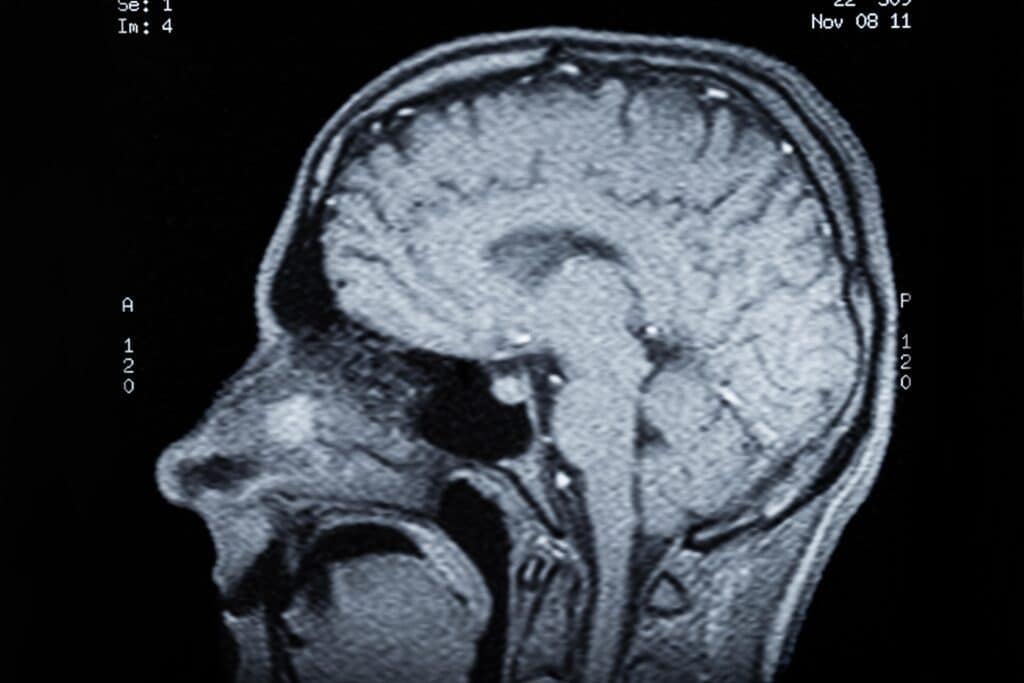Traumatic Brain Injuries (TBI)
Traumatic Brain Injury Causes
Over half of Traumatic Brain Injuries or TBIs are the result of a fall injury according to the Centers for Disease Control. Other leading causes of TBIs are motor vehicle accidents involving cars, motorcycles, bicycles, pedestrians, and even boats. Violence is another cause of TBIs including, gunshot wounds, domestic violence, child abuse, and other types of assaults. Sports injuries are very common causes of TBIs (concussions) especially from football and soccer. Explosive blasts and other combat-related injuries are also common causes of TBI in active-duty military personnel. Researchers believe that the pressure wave passing through the brain significantly disrupts brain function. Any time a person is struck by or against an object with blunt force, accidental trauma, assault, an object that penetrates the brain tissue (bullet), or a shattered piece of skull and motor vehicle accidents puts them at risk for a traumatic brain injury.

A TBI is caused by a blow or jolt to the head that disrupts the normal function of the brain. Not all blows or jolts to the head result in a TBI. Most TBIs that occur are mild and what we normally refer to as a concussion.
Effects of a Traumatic Brain Injury
After an injury, certain parts of the brain may not be working optimally, and the full effects of a brain injury may not appear for months or even years. Some of these TBIs may just affect your brain cells temporarily while a more serious TBI such as a brain bleed can result in long term complications or death.
Symptoms of Traumatic Brain Injury
Some symptoms of a TBI are:
- difficulty thinking clearly
- feeling slowed down
- difficulty concentrating
- difficulty remembering new information
- headache
- fuzzy or blurry vision
- nausea or vomiting
- dizziness
- sensitivity to noise or light
- balance problems
- feeling tired
- having no energy
- irritability
- sadness
- more emotional, nervousness, or anxiety
- sleeping more than usual
- sleeping less than usual or trouble falling asleep.
These symptoms typically appear right away but might be overlooked for months after the injury or until the person tries to resume their daily activities. People may look fine but may act and feel differently.
If you have suffered a blow or jolt to the head and have a headache that gets worse and does not go away, weakness, numbness or decreased coordination, repeated vomiting or nausea, and slurred speech, then you should seek medical attention right away. These symptoms can be a sign of bleeding in the brain and require immediate surgery.
Reducing the Risk of TBI in cars
Preventative measures that we can all take to avoid a TBI are using seat belts and making sure your car has an airbag. Small children should always sit in the back seat of the car with a car seat or booster seat whichever is most appropriate for their height and weight.
Do not drive under the influence of alcohol or drugs. Have a designated driver or use UBER.
Always wear a helmet while riding a bicycle, skateboard, motorcycle, or motorized scooter like a LIME scooter.
Do I have a brain injury from a car wreck?
If you or someone you love has been involved in a motor vehicle accident and has suffered a traumatic brain injury, then the Traub Law Office P.C. can help you. Call us at (512) 246-9191 or fill in the form to speak to an attorney today!

